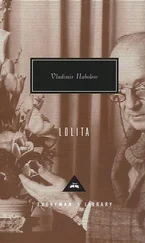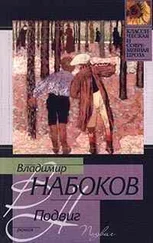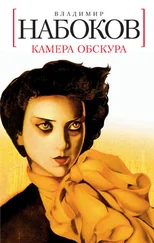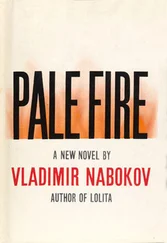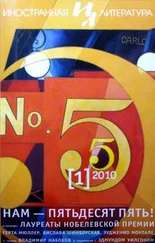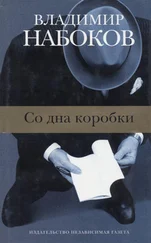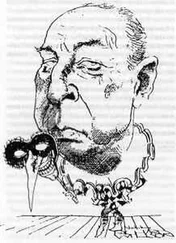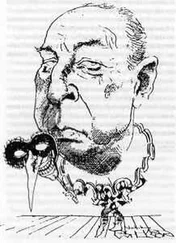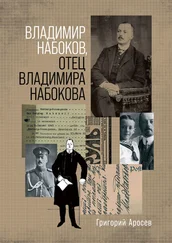Владимир Набоков - Ada, or Ador - A Family Chronicle
Здесь есть возможность читать онлайн «Владимир Набоков - Ada, or Ador - A Family Chronicle» весь текст электронной книги совершенно бесплатно (целиком полную версию без сокращений). В некоторых случаях можно слушать аудио, скачать через торрент в формате fb2 и присутствует краткое содержание. Жанр: Классическая проза, Современные любовные романы, на английском языке. Описание произведения, (предисловие) а так же отзывы посетителей доступны на портале библиотеки ЛибКат.
- Название:Ada, or Ador: A Family Chronicle
- Автор:
- Жанр:
- Год:неизвестен
- ISBN:нет данных
- Рейтинг книги:3 / 5. Голосов: 1
-
Избранное:Добавить в избранное
- Отзывы:
-
Ваша оценка:
- 60
- 1
- 2
- 3
- 4
- 5
Ada, or Ador: A Family Chronicle: краткое содержание, описание и аннотация
Предлагаем к чтению аннотацию, описание, краткое содержание или предисловие (зависит от того, что написал сам автор книги «Ada, or Ador: A Family Chronicle»). Если вы не нашли необходимую информацию о книге — напишите в комментариях, мы постараемся отыскать её.
Ada, or Ador: A Family Chronicle — читать онлайн бесплатно полную книгу (весь текст) целиком
Ниже представлен текст книги, разбитый по страницам. Система сохранения места последней прочитанной страницы, позволяет с удобством читать онлайн бесплатно книгу «Ada, or Ador: A Family Chronicle», без необходимости каждый раз заново искать на чём Вы остановились. Поставьте закладку, и сможете в любой момент перейти на страницу, на которой закончили чтение.
Интервал:
Закладка:
Their recently built castle in Ex was inset in a crystal winter. In the latest Who’s Who the list of his main papers included by some bizarre mistake the title of a work he had never written, though planned to write many pains: Unconsciousness and the Unconscious. There was no pain to do it now — and it was high pain for Ada to be completed. ‘Quel livre, mon Dieu, mon Dieu,’ Dr [Professor. Ed.] Lagosse exclaimed, weighing the master copy which the flat pale parents of the future Babes, in the brown-leaf Woods, a little book in the Ardis Hall nursery, could no longer prop up in the mysterious first picture: two people in one bed.
Ardis Hall — the Ardors and Arbors of Ardis — this is the leitmotiv rippling through Ada, an ample and delightful chronicle, whose principal part is staged in a dream-bright America — for are not our childhood memories comparable to Vineland-born caravelles, indolently encircled by the white birds of dreams? The protagonist, a scion of one of our most illustrious and opulent families, is Dr Van Veen, son of Baron ‘Demon’ Veen, that memorable Manhattan and Reno figure. The end of an extraordinary epoch coincides with Van’s no less extraordinary boyhood. Nothing in world literature, save maybe Count Tolstoy’s reminiscences, can vie in pure joyousness and Arcadian innocence with the ‘Ardis’ part of the book. On the fabulous country estate of his art-collecting uncle, Daniel Veen, an ardent childhood romance develops in a series of fascinating scenes between Van and pretty Ada, a truly unusual gamine, daughter of Marina, Daniel’s stage-struck wife. That the relationship is not simply dangerous cousinage, but possesses an aspect prohibited by law, is hinted in the very first pages.
In spite of the many intricacies of plot and psychology, the story proceeds at a spanking pace. Before we can pause to take breath and quietly survey the new surroundings into which the writer’s magic carpet has, as it were, spilled us, another attractive girl, Lucette Veen, Marina’s younger daughter, has also been swept off her feet by Van, the irresistible rake. Her tragic destiny constitutes one of the highlights of this delightful book.
The rest of Van’s story turns frankly and colorfully upon his long love-affair with Ada. It is interrupted by her marriage to an Arizonian cattle-breeder whose fabulous ancestor discovered our country. After her husband’s death our lovers are reunited. They spend their old age traveling together and dwelling in the various villas, one lovelier than another, that Van has erected all over the Western Hemisphere.
Not the least adornment of the chronicle is the delicacy of pictorial detail: a latticed gallery; a painted ceiling; a pretty plaything stranded among the forget-me-nots of a brook; butterflies and butterfly orchids in the margin of the romance; a misty view descried from marble steps; a doe at gaze in the ancestral park; and much, much more.
Notes to Ada
by Vivian Darkbloom
The text was prepared according to the Penguin Books and McGraw-Hill editions.
Page numbers in Notes to Ada refer to the Penguin Books edition.
p. 9. All happy families etc: mistranslations of Russian classics are ridiculed here. The opening sentence of Tolstoy’s novel is turned inside out and Anna Arkadievna’s patronymic given an absurd masculine ending, while an incorrect feminine one is added to her surname. ‘Mount Tabor’ and ‘Pontius’ allude to the transfigurations (Mr G. Steiner’s term, I believe) and betrayals to which great texts are subjected by pretentious and ignorant versionists.
p. 9. Severnïya Territorii: Northern Territories. Here and elsewhere transliteration is based on the old Russian orthography.
p. 9. granoblastically: in a tesselar (mosaic) jumble.
p. 9. Tofana: allusion to ‘aqua tofana’ (see any good dictionary).
p.10. sur-royally: fully antlered, with terminal prongs.
p.10. Durak: ‘fool’ in Russian.
p.10. Lake Kitezh: allusion to the legendary town of Kitezh which shines at the bottom of a lake in a Russian fairy tale.
p.11. Mr Eliot: we shall meet him again, on pages 361 and 396, in company of the author of ‘The Waistline’ and ‘Agonic Lines’.
p.11. Counter-Fogg: Phileas Fogg, Jules Verne’s globetrotter, travelled from West to East.
p.11. Goodnight Kids: their names are borrowed, with distortions, from a comic strip for French-speaking children.
p.13. Dr Lapiner: for some obscure but not unattractive reason, most of the physicians in the book turn out to bear names connected with rabbits. The French ‘lapin’ in Lapiner is matched by the Russian ‘Krolik’, the name of Ada’s beloved lepidopterist (p.13, et passim) and the Russian ‘zayats’ (hare) sounds like ‘Seitz’ (the German gynecologist on page 181); there is a Latin ‘cuniculus’ in ‘Nikulin’ (‘grandson of the great rodentiologist Kunikulinov’, p.341), and a Greek ‘lagos’ in ‘Lagosse’ (the doctor who attends Van in his old age). Note also Coniglietto, the Italian cancer-of-the-blood specialist, p.298.
p.13. mizernoe: Franco-Russian form of ‘miserable’ in the sense of ‘paltry’.
p.13. c’est bien le cas de le dire: and no mistake.
p.13. lieu de naissance: birthplace.
p.13. pour ainsi dire: so to say.
p.13. Jane Austen: allusion to rapid narrative information imparted through dialogue, in Mansfield Park.
p.13. ‘Bear-Foot’, not ‘bare foot’: both children are naked.
p.13. Stabian flower girl: allusion to the celebrated mural painting (the so-called ‘Spring’) from Stabiae in the National Museum of Naples: a maiden scattering blossoms.
p.16. Raspberries; ribbon: allusions to ludicrous blunders in Lowell’s versions of Mandelshtam’s poems (in the N.Y. Review, 23 December 1965).
p.16. Belokonsk: the Russian twin of ‘Whitehorse’ (city in N.W. Canada).
p.17. en connaissance de cause: knowing what it was all about (Fr.).
p.18. Aardvark: apparently, a university town in New England.
p.18. Gamaliel: a much more fortunate statesman than our W.G. Harding.
p.19. interesting condition: family way.
p.19. Lolita, Texas: this town exists, or, rather, existed, for it has been renamed, I believe, after the appearance of the notorious novel.
p.20. penyuar: Russ., peignoir.
p.20. beau milieu: right in the middle.
p.20. Faragod: apparently, the god of electricity.
p.20. braques: allusion to a bric-à-brac painter.
p.23. entendons-nous: let’s have it clear (Fr.).
p.24. Yukonets: inhabitant of Yukon (Russ.).
p.25. lammer: amber (Fr: l’ambre), allusion to electricity.
p.25. my lad, my pretty, etc: paraphrase of a verse in Housman.
p.25. ballatetta: fragmentation and distortion of a passage in a ‘little ballad’ by the Italian poet Guido Cavalcanti (1255–1300). The relevant lines are: ‘you frightened and weak little voice that comes weeping from my woeful heart, go with my soul and that ditty, telling of a destroyed mind.’
p.27. Nuss: German for ‘nut’.
p.28. Khristosik: little Christ (Russ.).
p.28. rukuliruyushchiy: Russ., from Fr. roucoulant, cooing.
p.29. horsepittle: ‘hospital’, borrowed from a passage in Dickens’ Bleak House. Poor Joe’s pun, not a poor Joycean one.
p.30. aujourd’hui, heute: to-day (Fr., Germ.).
p.30. Princesse Lointaine: Distant Princess, title of a French play.
p.31. pour attraper le client: to fool the customer.
p.34. Je parie, etc.: I bet you do not recognize me, Sir.
Читать дальшеИнтервал:
Закладка:
Похожие книги на «Ada, or Ador: A Family Chronicle»
Представляем Вашему вниманию похожие книги на «Ada, or Ador: A Family Chronicle» списком для выбора. Мы отобрали схожую по названию и смыслу литературу в надежде предоставить читателям больше вариантов отыскать новые, интересные, ещё непрочитанные произведения.
Обсуждение, отзывы о книге «Ada, or Ador: A Family Chronicle» и просто собственные мнения читателей. Оставьте ваши комментарии, напишите, что Вы думаете о произведении, его смысле или главных героях. Укажите что конкретно понравилось, а что нет, и почему Вы так считаете.

